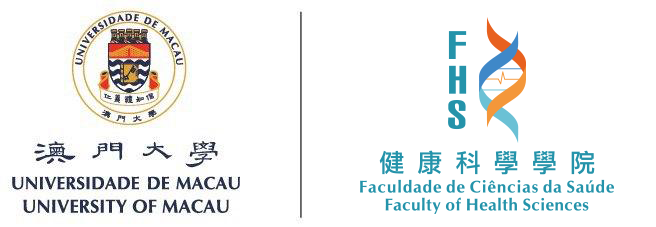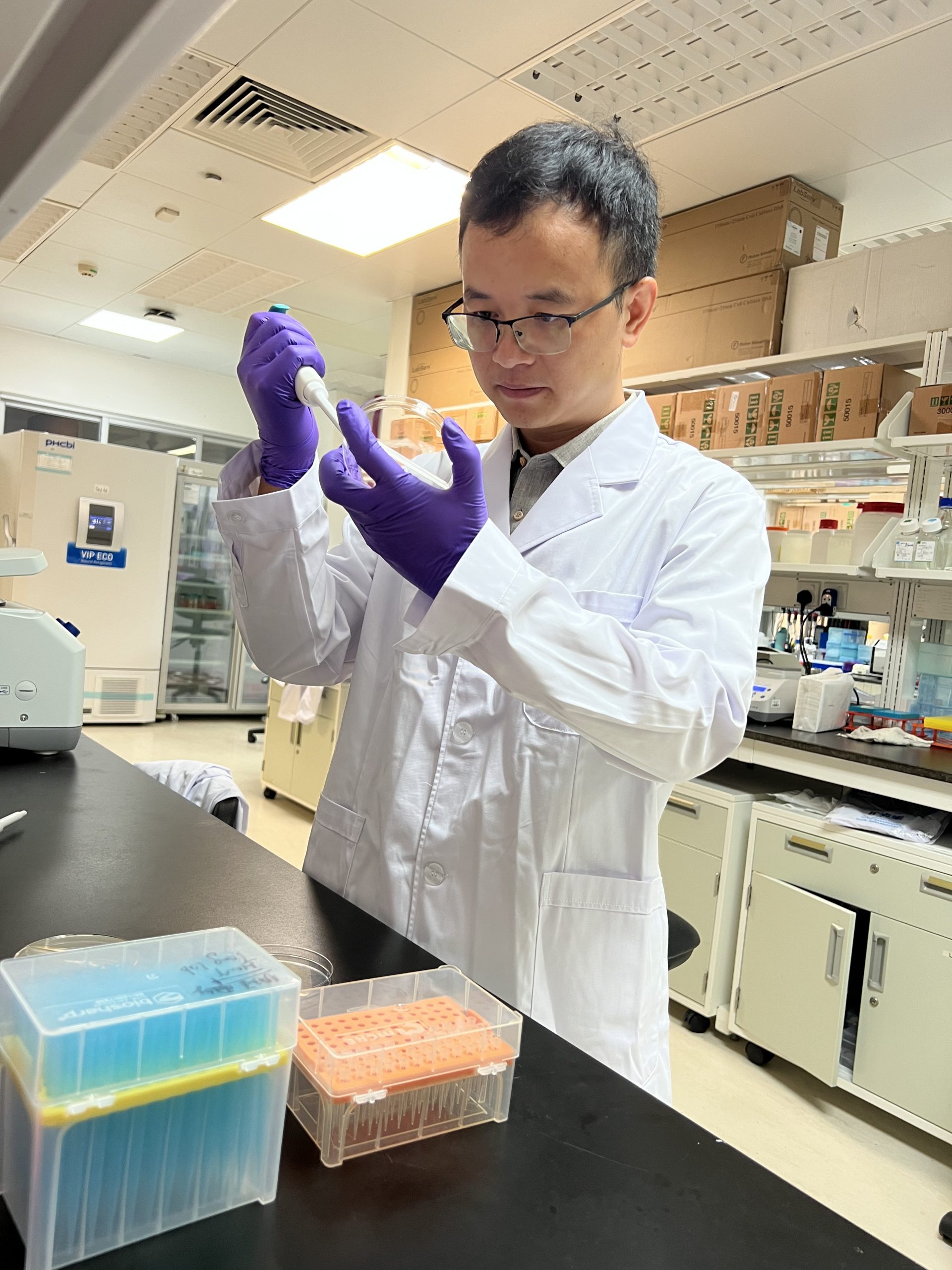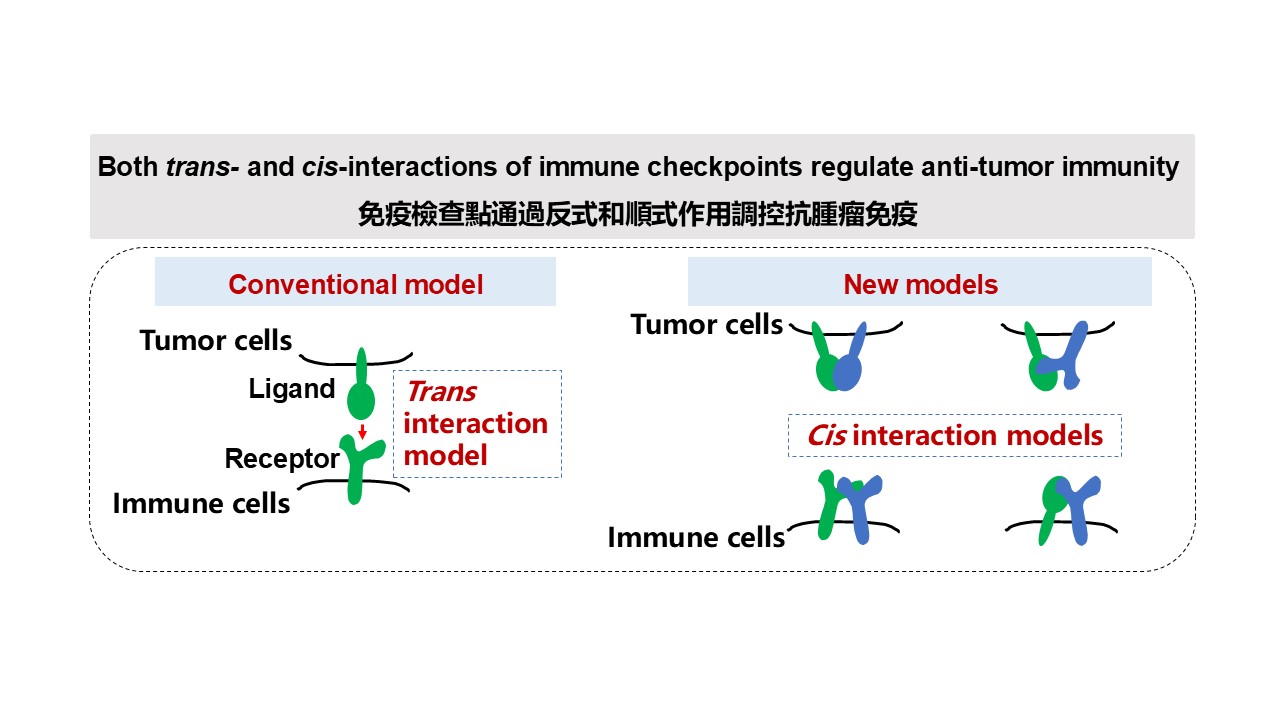Prof Zhenghai TANG, Assistant Professor at Faculty of Health Sciences (FHS) of University of Macau (UM), has recently been awarded the National Natural Science Foundation’s (NSFC) “2025 Young Scientists Fund Scheme (Category B)” (formerly the Excellent Young Scientists Fund Scheme). Prof Tang expressed that receiving this honour is immensely encouraging, as it not only recognises his efforts in scientific research but also injects fresh impetus and confidence into his exploration of cancer immunotherapy.
Prof Tang’s research project focuses on elucidating the mechanisms of tumour immune checkpoints and developing relevant antibodies, aiming to enhance the efficacy of cancer immunotherapy. He pointed out that although antibodies targeting immune checkpoints such as PD-1, PD-L1, and CTLA-4 are already in clinical use, over 70% of patients cannot benefit from them. One of the key reasons is that our understanding of immune checkpoint mechanisms is still limited.
‘Tumour cells often overexpress ligands to interact in trans with inhibitory receptors on immune cells, thereby hindering anti-tumour immunity. Our research reveals that immune checkpoints can also engage in cis interactions within tumour cells or immune cells, regulating the anti-tumour immunity.’ said Prof Tang. He believes that future immune checkpoint inhibitors should consider both trans and cis interactions to achieve better anti-tumour outcomes.
Discussing the challenges encountered in his research journey, Prof Tang admitted, ‘Experimental results often fall short of expectations, but that is the very charm of scientific research.’ With a smile, he remarked that every ‘unexpected result’ is a learning opportunity. There is no inherent good or bad in results; what matters is how one interprets them. He believes that as long as one maintains curiosity and passion, personal breakthroughs can be found through continuous exploration.
Prof Tang emphasised that both UM and FHS have provided him with robust support for his research, particularly through the faculty’s state-of-the-art Animal Research Core, which is crucial for immunology research. This facility safeguards the research team to conduct key experiments such as in vivo mechanism validation and antibody functional assessment. ‘With such an impressive research environment, we can confidently pursue truly ground-breaking research,’ he said. Furthermore, he noted that the faculty spares no effort in nurturing young scientific talent, offering a diverse range of resources and guidance to create fertile ground for the growth of early-career scholars.
Looking ahead, Prof Tang hopes to further identify promising immune checkpoints and develop antibody drugs suitable for clinical application, thereby benefiting more cancer patients. He also encourages young people aspiring to a scientific career: ‘Enjoy what you are doing in the moment, ignite your passion through exploration, strengthen your resolve through passion, and achieve self-fulfilment through conviction.’
The Young Scientists Fund Scheme (Category B) is a talent support scheme established by NSFC, serving as an important stepping stone to the National Science Fund for Distinguished Young Scholars. Since its inception in 2012, the scheme has aimed to support early-career researchers who have achieved solid results in basic research, encouraging them to independently select research topics, embrace innovation at the scientific frontier, further unleash their potential, and inject new vitality into China’s basic research and technological innovation.



